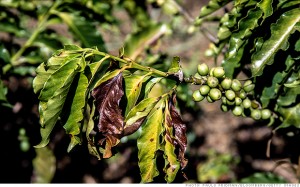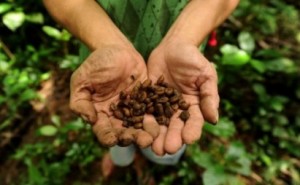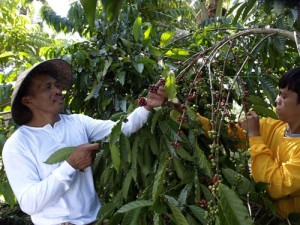June 27, 2014
Ordinarily, the Arabic coffee plants in Brazil, where most (almost a third) of the world’s coffee is produced, would be maturing. However, due to the worst drought hitting Brazil’s coffee belt region, the price of coffee has risen more than 50% this year. 
So far, retail coffee prices have been able to remain stable, but if the price of the Arabic bean continues to rise, consumers may find themselves paying more for the favorite beverage.
For these reasons, while Brazil remains the largest producer of coffee, entering the market in this country is not advisable until Brazil is able to recover from this hardship. 
Source: http://buzz.money.cnn.com/2014/04/24/coffee-brazil-drought/
July 4, 2014
Zimbabwe’s 5 Year Plan for the Coffee Industry
Recent droughts occurring in the country of Zimbabwe has left the country with few irrigation options as well as limited funding and infrastructure causing coffee levels to drop. Coffee was once Zimbabwe’s fifth largest currency earner, but now the country struggles to turn much of a profit for the product. 
Fortunately, leaders in the coffee industry of Zimbabwe have developed a five year plan restore production once more, hoping to increase income for more than 50,000. Their strategy involves the continued upkeep of existing plantations and the appropriation of about 11,500 acres of new land to grow coffee. To fund this system, the country will look to both  private sectors and foreign investors.
private sectors and foreign investors.
Dr. Ignatius Chombo, the Acting Minister of Agriculture, encourages financiers to take advantage of this and the world’s need for coffee.
Source: http://www.worldcoffeepress.com/5850/5-year-plan-zimbabwean-coffee-industry/
July 27, 2014
Moving Farmers Higher on the Value Chain in the Industry
According to Pacita U. Juan, co-chair of the Philippine Coffee Board Inc., large coffee companies should look to aid farmers in adding ore value to their products as a w ay to boost farmers further up on the value chain. This will, in turn, promote “inclusive” economic growth. Juan states, “…as a big company, its objective is to get the coffee at the lowest price possible. So they don’t let farmers do the next step in the value chain”. However, should these big companies allow farmers
ay to boost farmers further up on the value chain. This will, in turn, promote “inclusive” economic growth. Juan states, “…as a big company, its objective is to get the coffee at the lowest price possible. So they don’t let farmers do the next step in the value chain”. However, should these big companies allow farmers
to move to higher value, they can potentially double their earnings .
.
The benefits do not stop there. Farmer inclusion in the economic growth can also imply a trickle down effect for indigen
ous people opening doors for employment in rural areas.
Source: http://www.interaksyon.com/article/91130/coffee-industry-needs-to-move-farmers-to-higher-value-chain
Should companies in the coffee industry decide to help farmers, this could mean better economies for many developing nations and further enhance their investment opportunities and potential.
